News
Some tips to consider when starting a business

Enterprenuers should be passionate about the business they want to start
Everyone can own a business because we are in a world of limitless opportunities — those we create ourselves and others that we chance on from time to time.
It is a beautiful thing when a woman is empowered financially. It is, therefore, important that every woman makes an effort to create or start something that will give her financial liberation.
Today, I share with you the path I followed to become a fashion retail owner and a social activist. Read through and see if you can adapt any of the tips or fine-tune them to suit your personal needs.

Passion
Before embarking on any business journey, one would have to be honest about the passion behind the establishment of the business. It is the beginning of how one feels about the whole business idea.
Certainly, there are ups and downs in starting and running a business so one would have to be ‘super passionate’ about what they intend to start. Don’t just wake up and do it because you think everyone is doing it or because you have some loose money. Ask yourself if you’re, indeed, passionate what you want to start.
Business idea
A good business idea could make a successful business. Your business idea can be what a lot of people are already doing but it does not matter. Make sure you are willing to start and make the idea you have stand out from the rest.
3. Get a brand name. Your brand name is what you will be identified with. Your brand name is what you will use to advertise your business, the products you sell or the services you offer.
Your brand name must be one that resonates with your target audience and one that can be identified easily. The brand name must symbolise what you do. Your brand name should stand out and must be on top of people’s minds. You can discuss or brainstorm this till you arrive at a suitable brand name.
Build a team or go solo
My “Kuburah Diamonds Boutiq” is solely run by me, my sales and delivery personnel. But my Zango Women Livelihood & Empowerment Programme has a team — a group of skilful and resourceful empowered women who come together to make it a successful project.
Therefore, If you eventually decide on what to do, decide if the business is something you can ran yourself or you will need a complete team.
Look for suppliers or vendors
If you are planning to start trading in skincare products, you need to know who and where to get your raw materials and packages. If it is clothes or accessories, find out who you are buying from.
Again, you’ll have to be concerned about the source and the quality of the supplies you procure.
Register your business
Note that, as you are thinking of the business and brand name, a thousand and one people are also thinking along the same line so you have to act smart.
It is important to register your business formally at the appropriate quarters so someone does not go ahead of you to claim ownership of your business name. Smartness is a good characteristic of a successful business person.
Grow your business
If you are truly passionate about starting a business, trust that doing all the things you will need to grow that business will come naturally and you will do it effortlessly regardless of the setbacks.
Here, you can grow it by introducing it to people close to you, family and friends, these are the first word of mouth ambassadors of our business. Subsequently introduce your business at places you go and the event you attend.
Carry your business flyers or portfolio around, drop business cards and flyers at front desks and receptions if possible. Speak to people, introduce your business. Open a social media business page, invest in advertising or if you have the power to grow it organically, you can do that also.
I wish you all the best.
[The writer is the Founder of Kuburah Diamonds Foundation]
By Adiza Kuburah
News
Mrs Dotse-Ametsi installed as Devt Queen

The Dome-Tsevie clan of Abutia-Kloe in the Ho West District of the Volta Region last weekend outdoored Mrs Joycelyn Akorfa Dotse-Ametsi as a Development Queen.
The ceremony which attracted traditional, political and business executives among others had Mr Bernand Mornah of the People’s National Convention Party as the special guest of honour.
Mrs Dotse-Ametsi with the ceremonial name of Mama Woe-Nenyo I, was tasked with liaising and spearheading development projects and educational reforms among others.


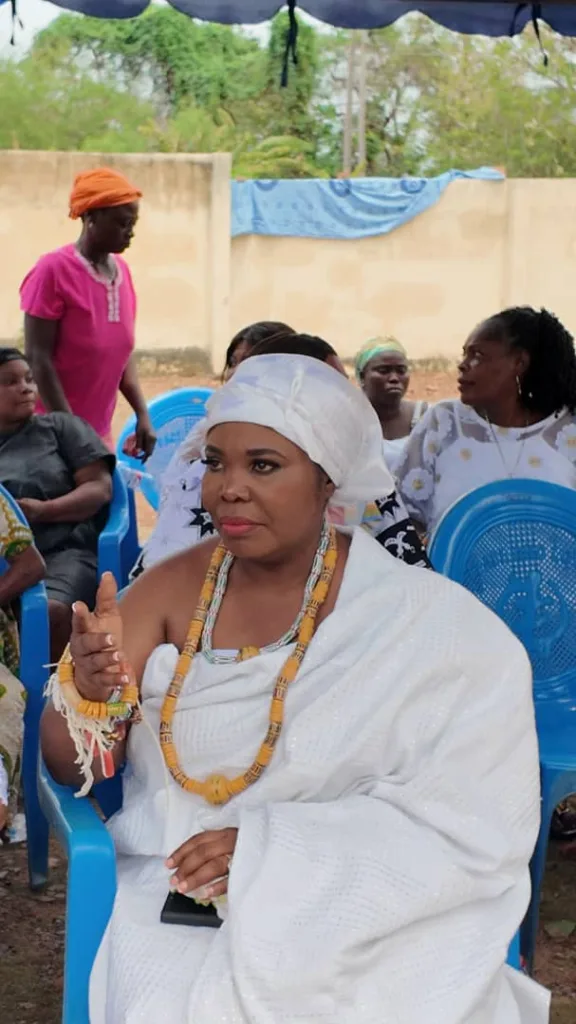

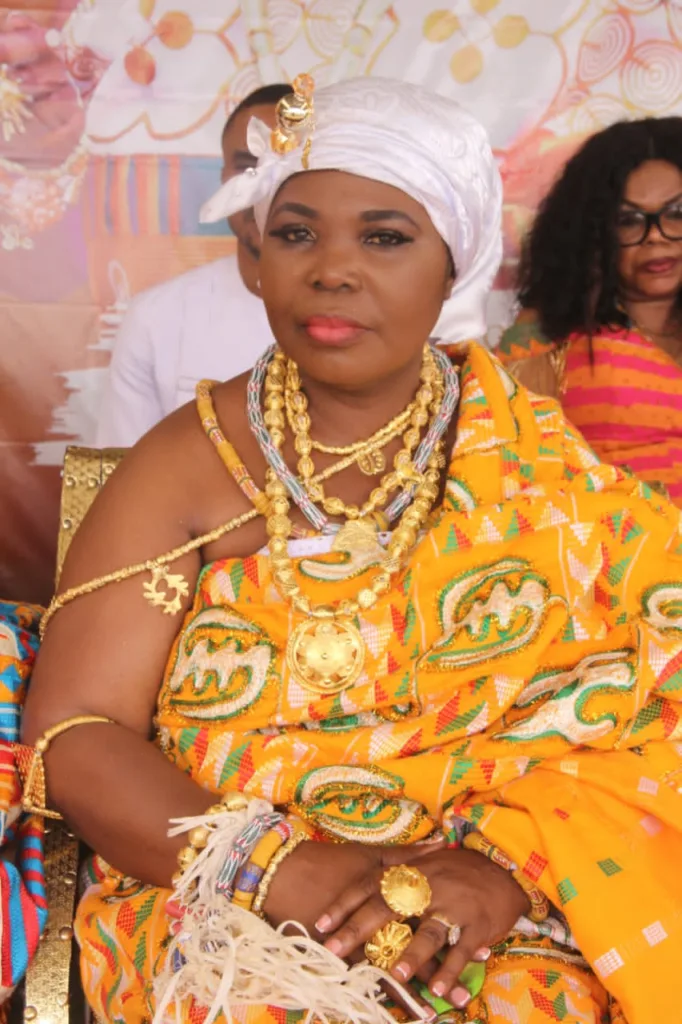







The ceremony also coincided with the 30 years anniversary of the death of Torgbe Abutia Kodzo XVI (ex-President of the Volta Regional House of Chiefs) who happened to be her father.
Mama Woe-Nanyo I promised to adhere to the promise and expectations her clan has in her and not depart from the honour and respect her father radiated during his reign.

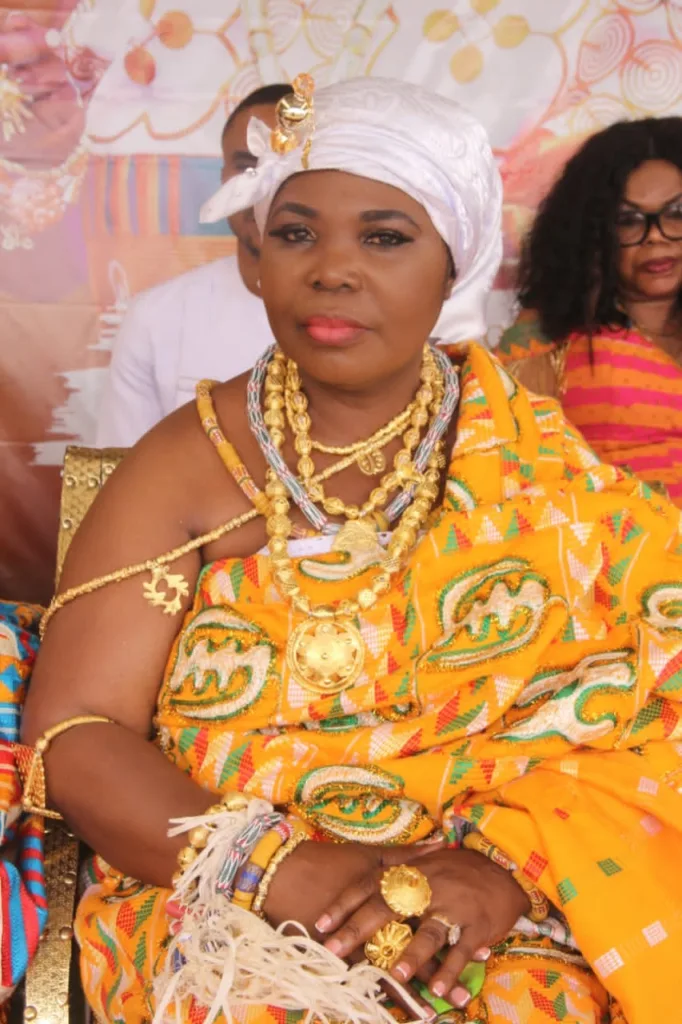
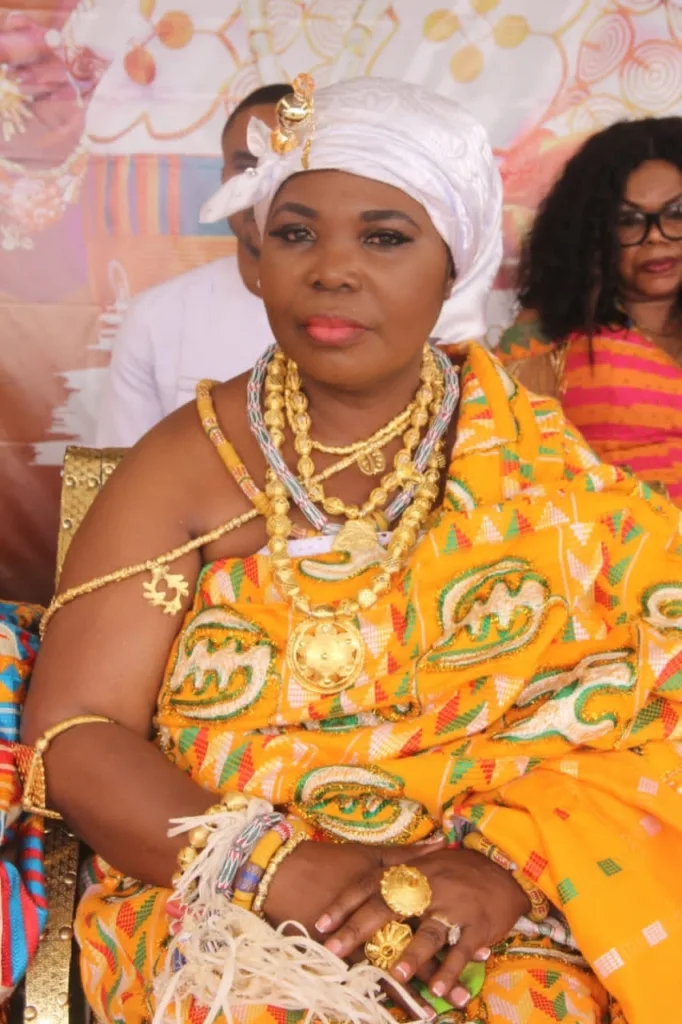





She called for the various clans of Abutia-Kloe to come together for the rapid development of Kloe and the Abutia Traditional Council.
News
The Golden Gift of the Savannah: The untold story of Shea Nut and Shea Butter
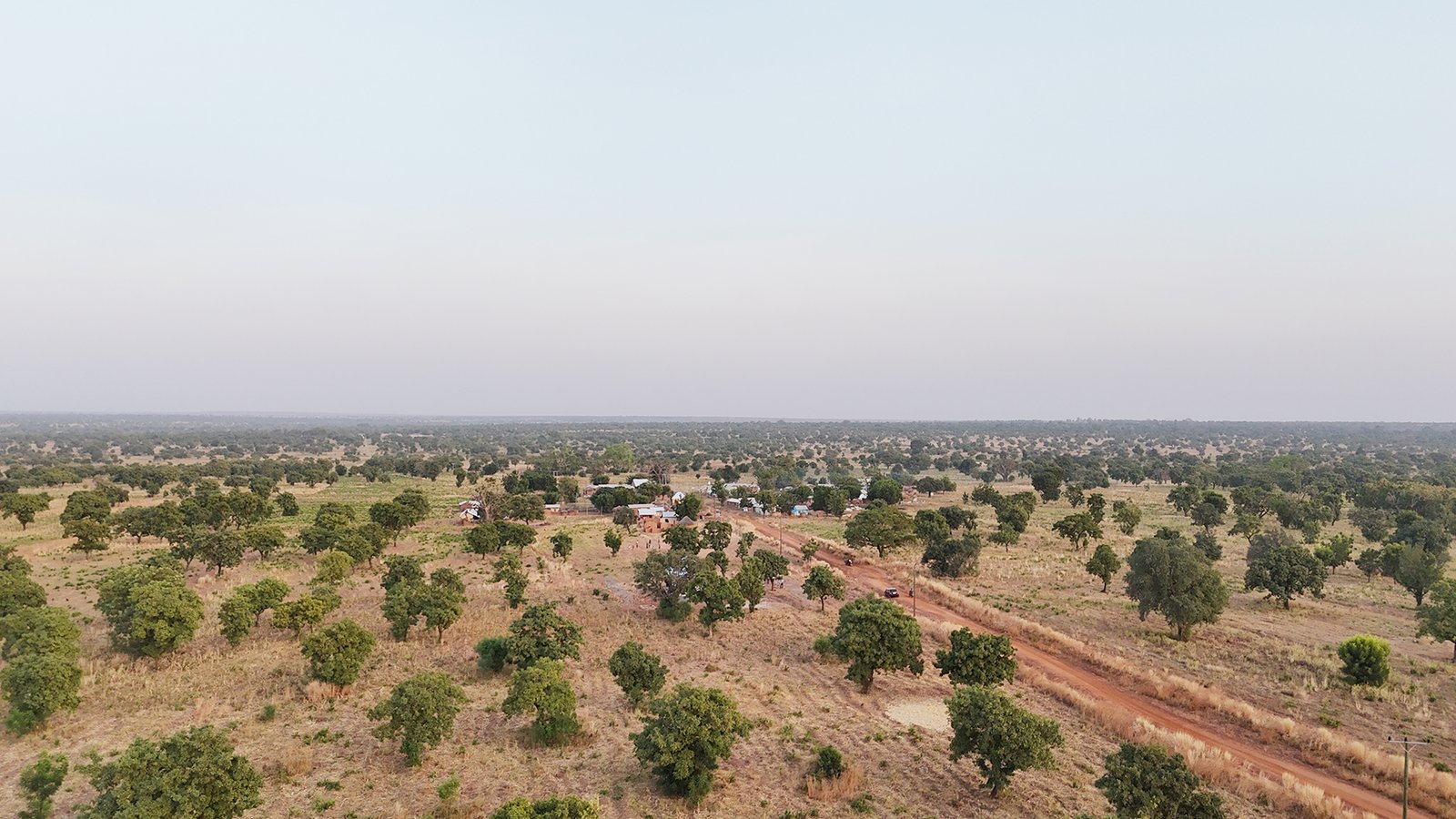
In the vast Savannah of Northern Ghana, where the sun ‘kisses’ the earth stands a tree revered for its economic and cultural significance – the shea tree.
For centuries, the shea nut plucked from this resilient tree, has been the lifeblood of countless women and communities, shaping economies, traditions, and futures across the northern regions of Ghana.
To many women, shea butter is not merely an ingredient in cosmetics and skincare.
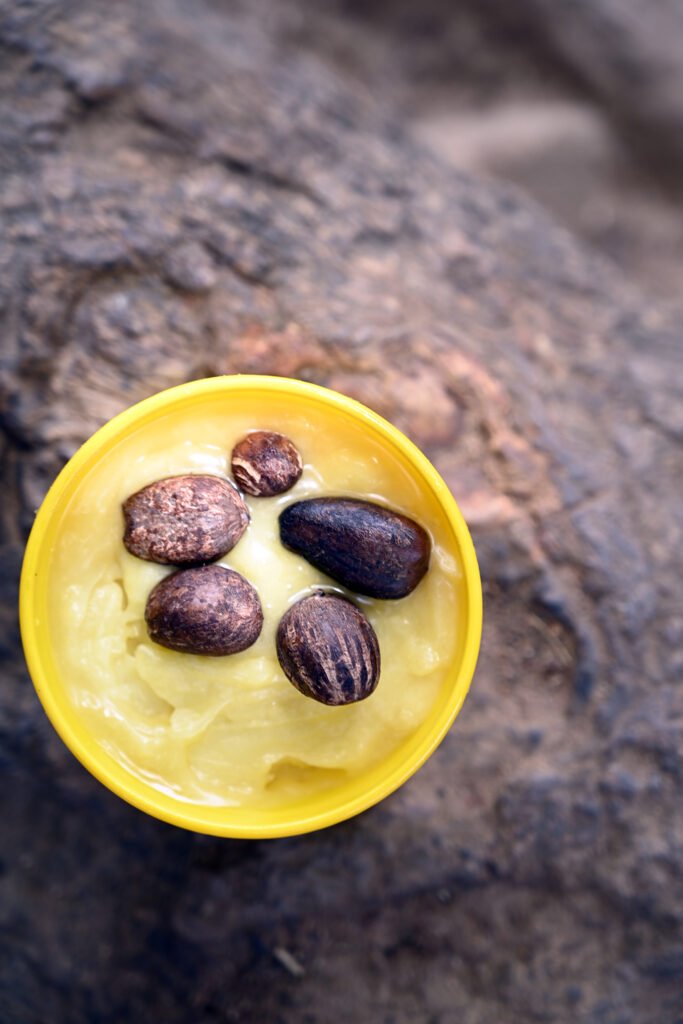
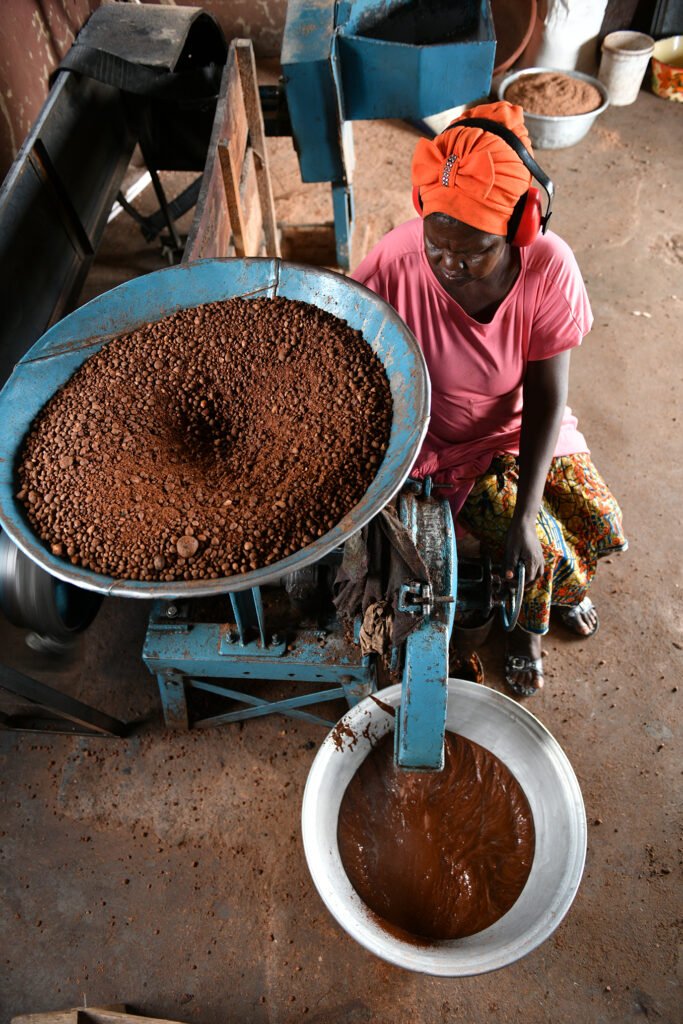
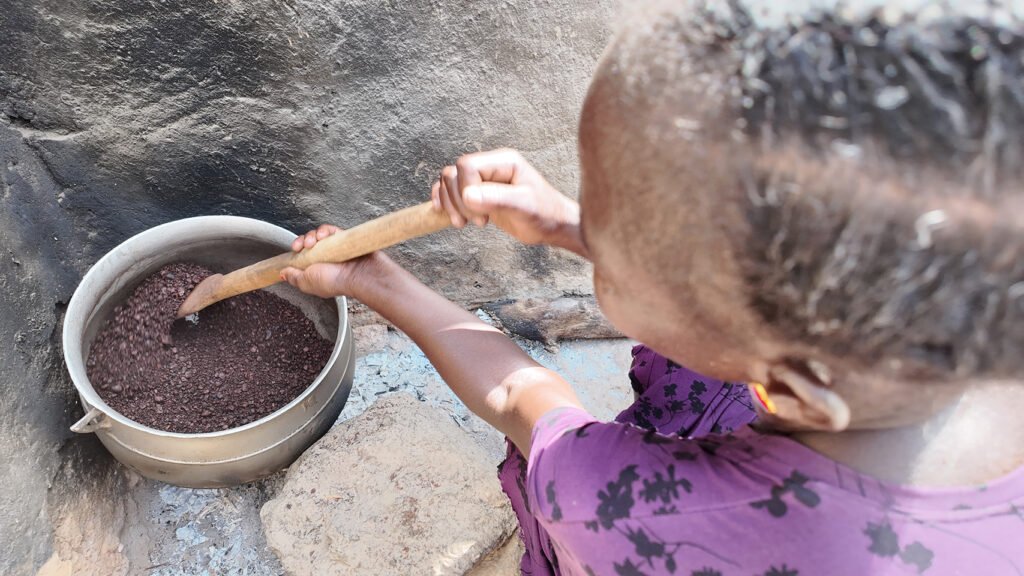
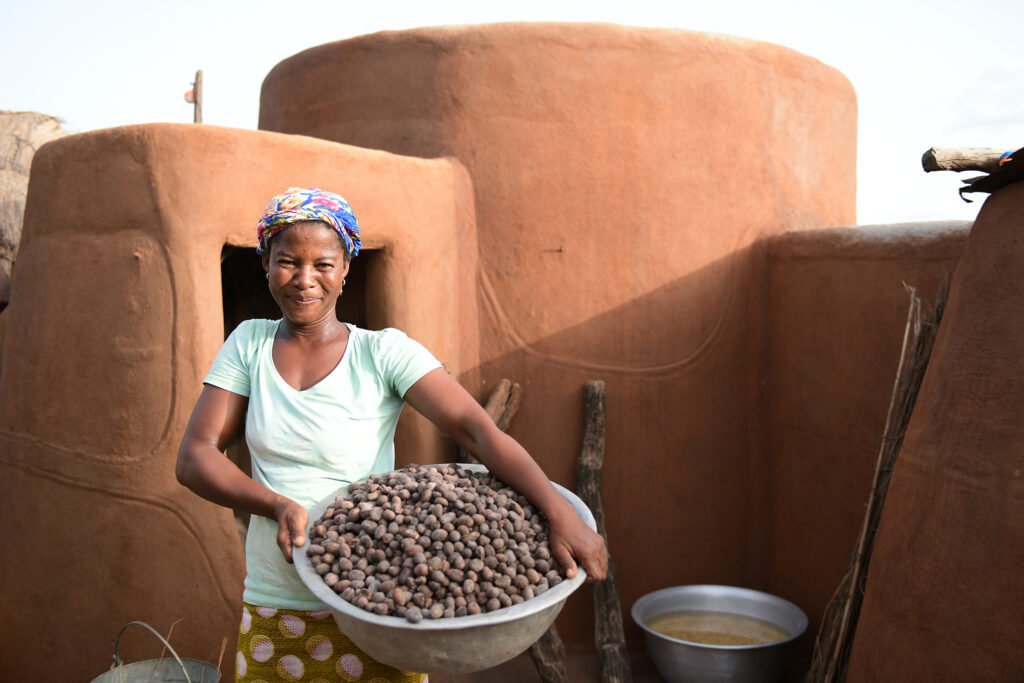
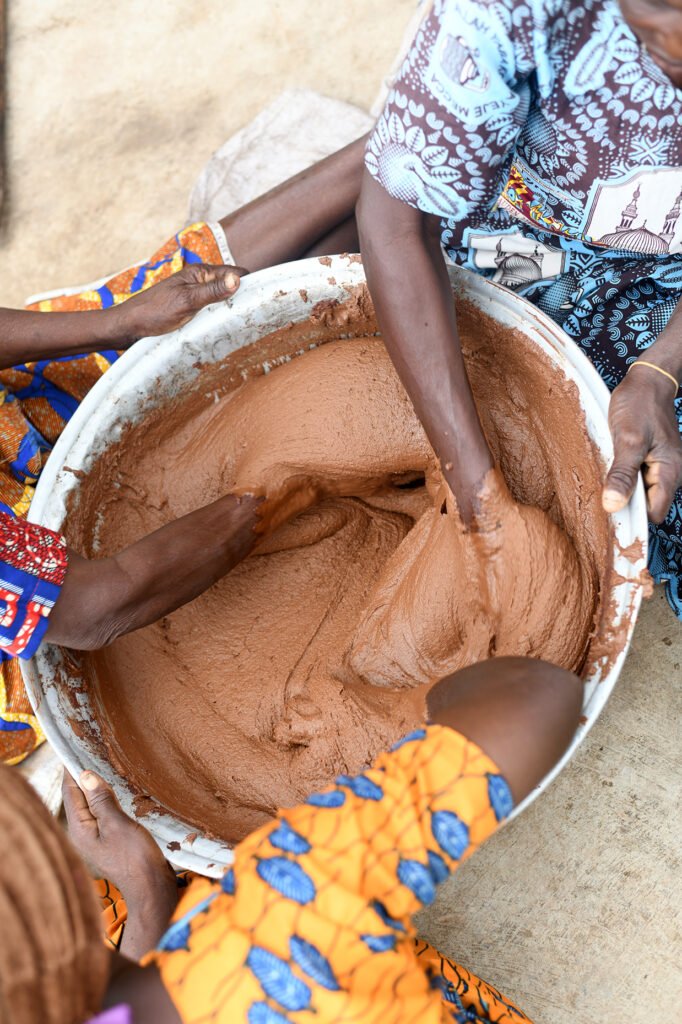
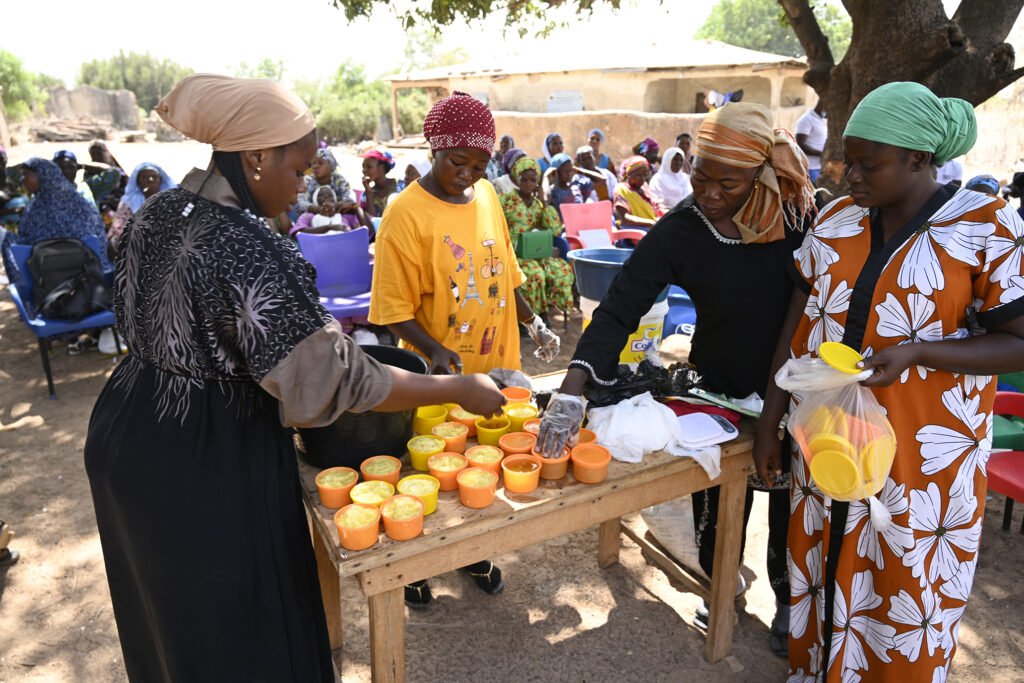
It is a symbol of resilience and economic empowerment. This golden treasure provides a sustainable income for women who painstakingly gather, dry, and process the nuts into a rich butter renowned worldwide for its healing and moisturizing properties.
Beyond its nuts, the shea tree produces a sweet, edible fruit packed with vitamins and nutrients. Its pulp is an excellent source of vitamin C, fiber, and antioxidants, which boost immunity, aid digestion, and promote overall health.
The fruit, often consumed fresh, serves as an essential source of nourishment for rural communities.
However, the journey from shea nut to shea butter is a laborious process requiring skill, patience, and sheer determination.
Women venture into the wild, walk long distances to collect fallen shea nuts.
After gathering, the nuts are boiled, sun-dried, and cracked open to reveal the kernels. These kernels are then roasted, grinded, and kneaded by hand until the oil separates from the solids, forming the smooth, fragrant butter which is now a staple in beauty and pharmaceutical industries, globally.
Shea butter is not the only valuable product derived from this remarkable tree. The shea nut also yields a highly nutritious cooking oil used traditionally in West African cuisine.
Rich in healthy fats, it promotes heart health and serves as a healthier alternative to palm oil and other cooking oils.
As global interest in natural and sustainable products grows, the demand for shea butter has surged.
Major cosmetic brands have embraced it as a key ingredient in lotions, hair products, and medicinal ointments, thanks to its high concentrations of vitamins A and E and anti-inflammatory properties.
Additionally, the food industry now recognises shea butter as a viable alternative to cocoa butter in chocolate production, further expanding its market value.
Yet, despite its growing international appeal, the shea industry faces significant challenges.
Climate change threatens the sustainability of shea trees, while middlemen and unfair pricing structures often limit the earnings of the women who produce the butter.
However, initiatives promoting fair trade, value addition, and sustainable harvesting practices offer hope for better economic returns for shea producers.
Organisations and cooperatives are working tirelessly to protect the shea tree and enhance the livelihoods of shea butter producers.
By introducing modern processing techniques, offering training programmes, and securing fair trade agreements, these efforts are ensuring that the legacy of shea butter continues to benefit local communities for generations to come.
Maria Johana Yuorpor, one of the women leading this transformation is a dedicated shea butter processor. For over a decade, she has championed quality production while equipping women with the skills to refine and add value to this ‘women’s gold.’
Maria’s journey into the shea butter industry was not one of mere chance but of deep-rooted passion and an unyielding commitment to uplift her community.
Growing up in a region where shea butter was a staple in homes used for cooking, skincare, and medicinal purposes, she witnessed firsthand its potential as a tool for economic empowerment.
Determined to make a difference, she immersed herself in intensive research and training, perfecting her craft to meet international standards.
Over the years, her expertise and commitment to quality production have earned her local and international recognition, shining a spotlight on Upper West shea butter.
According to Maria, the best shea butter comes from the Upper West Region due to the naturally rich and unpolluted environment in which shea trees flourish.
“The climate and soil here give our shea nuts a unique richness, which translates into high-quality butter with superior texture and moisturizing properties as well as the best way of processing it,” she explains.
Maria said, said when she begun understanding the importance of value addition, she started training women in her community on advanced processing techniques, including refining, packaging, and product diversification.
“Today, many of my trainees have expanded beyond producing raw shea butter to crafting soaps, body creams, and essential oils, all tailored for export markets”, she added.
To further enhance the shea industry and support women entrepreneurs, the Kosmos Innovation Center (KIC) among many organisations has stepped in with training and funding opportunities.
Mrs. Mercy Tuffour, Gender and Safeguarding Specialist in an interview said, KIC through their initiatives were training women on modern techniques in product formulation, branding, and market access, allowing them to elevate their shea-based businesses.
She emphasised the significance of these interventions: “We are committed to equipping women with the skills and resources needed to create high quality shea products that can compete in both local and international markets.
By adding value to raw shea butter, these women are transforming their livelihoods and securing better financial futures, where Northern Ghana becomes the hub of premium shea butter exports, driven by women entrepreneurs, she added.
She also advocated increased investment in shea butter processing facilities and seeks partnerships with global skincare and cosmetic brands to highlight Ghana’s superior shea butter.
As Maria Johana Yuorpor continues her mission, her story serves as an inspiration to many – proof that with passion, knowledge, and resilience, local resources can be transformed into global opportunities, changing lives one shea nut at a time.
Story/Photos from Geoffrey Buta, Nyoli, Upper West







